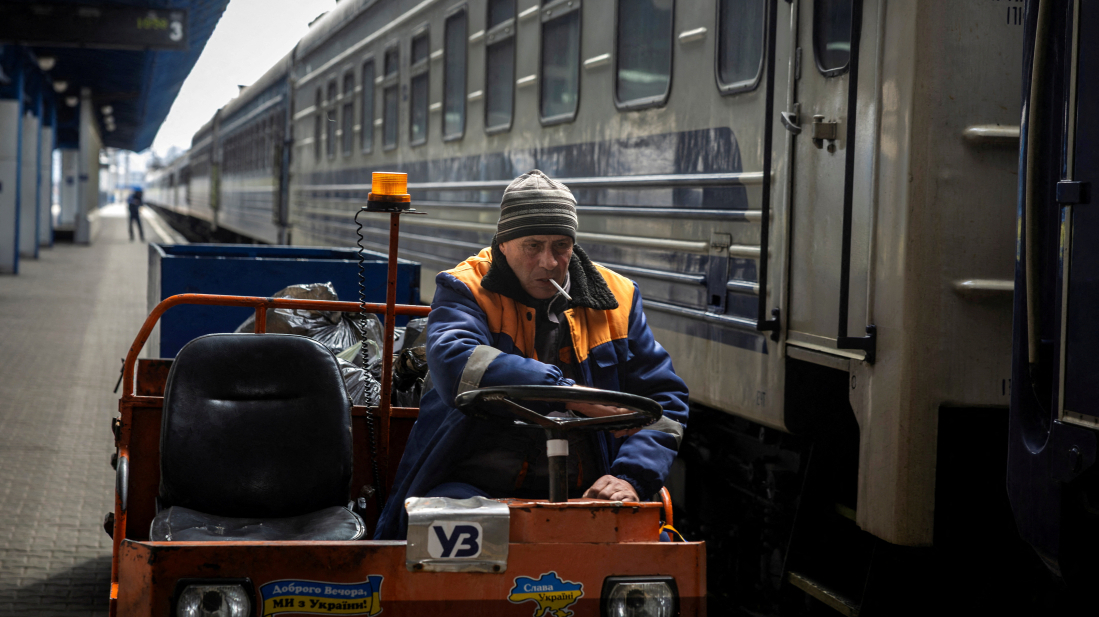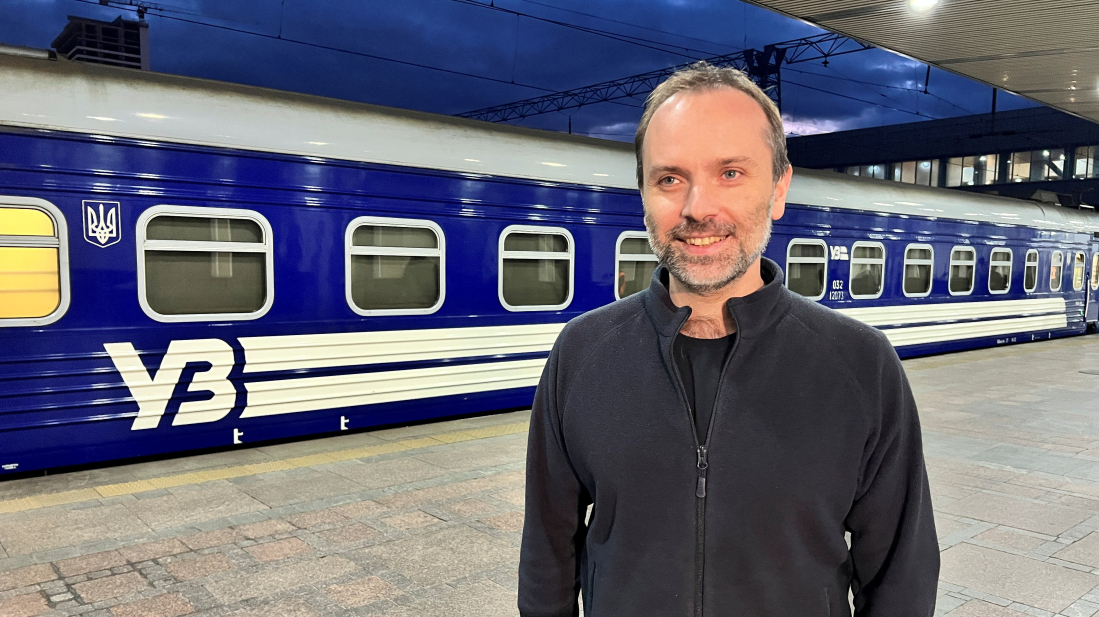U.S.-Israeli strikes on Iran: What we know so far
The United States and Israel have carried out large-scale strikes on Iranian leadership and military targets, with Iranian state media confirming t...

Russia has launched a series of attacks on Ukraine's railways since the summer, using long-range drones to target key points, but the network is still functioning, the state railway CEO of Ukrzaliznytsia told Reuters.
"Their first aim is to sow panic among passengers, their second aim is to hit the overall economy," Oleksandr Pertsovskyi said in an interview held in a rail carriage at Kyiv's central station.
He added that there did not appear to be a particular focus on targeting military cargo.
"These are all, in essence, strikes on civilian infrastructure," he said.

Ukrzaliznytsia, the vast state-owned railway company, employs 170,000 people and has been targeted by Russia since the start of Russia's invasion three-and-a-half years ago. However, the attacks have intensified, causing regular delays.
Since the start of the war in February 2022, the railway network has been essential for people moving around Ukraine and out of the country, as all civilian flights have been stopped.
Previously, World leaders, from French President Emmanuel Macron to Indian Prime Minister Narendra Modi and former U.S. President Joe Biden, have arrived during wartime by train in Ukraine.
The rail company's popular sleeper carriages are seen as a reliable way to travel overnight and arrive early in the morning in cities many hundreds of miles away, until the latest Russian strikes caused hours-long delays for passengers.
The railway is also crucial for transporting military equipment and commercial cargo, although volumes of the latter have dropped significantly in wartime, denting the company's finances.
Pertsovskyi said the attacks, which have hit dozens of substations, were linked to the dramatic increase of long-range drones that Russia's military-industrial complex is producing.
"Previously, they simply did not have sufficient resources for a single combat drone, such as a Shahed, to hunt down a locomotive. Now they can afford to use Shaheds to hit individual locomotives rather than strategic targets."
For now, the railway is recovering from each blow, he said.
The immediate disruption to trains after an attack usually lasts six to 12 hours and electric locomotives are switched out for diesel while power is restored.
Pertsovskyi said disruption had been minimised and the transit of military cargoes had not been impacted.
"It's a marathon ... They strike us, we recover," he said. "They strike us, we recover."
Electricity substations targeted
Since the middle of summer, Russia has attacked railway electricity substations and other infrastructure nodes with an average of six to seven long-range Shahed kamikaze drones most nights, according to Pertsovskyi.
"They are ... acting systematically, knocking out one substation after another or key rail hubs in order to stop passenger trains and sow panic and distrust among the people."
Five or six key rail hubs have been bombarded since the summer, he said.
Reuters could not independently verify the reports.
Russia denies targeting Ukrainian civilians.
The railway also faces sabotage from agents recruited by Russia in Ukraine.
Ukraine's security services regularly announce the detention of people they accuse of plotting to blow up vulnerable points on the network.
This is less of a threat than Russian airstrikes, but sabotage is on the rise with dozens of cases recorded this year, according to Pertsovskyi.
Diesel locomotives are about five times more expensive to run per kilometre than their electric equivalents, an additional headache for a company with deep financial issues.
The World Bank estimates that roughly 30% of Ukraine's railway is in a "damage-repair" cycle.
Some bridges had been hit many times over by Russian forces throughout the war and repaired each time, but Pertsovskyi declined to specify which ones, citing security reasons. He said that the company would keep up the pace of repairs.
"If we slow down a little and let the enemy strike and destroy, then they will be even more drawn to the smell of blood."
Follow the latest developments and global reaction after the U.S. and Israel launched “major combat operations” in Iran, prompting retaliation from Tehran.
Tensions between the U.S. and Iran are escalating, with Washington ordering a significant military build-up in the region and multiple countries evacuating diplomatic staff amid fears of further instability.
Governments across the region responded swiftly to Israel’s strikes on Iran, closing airspace, issuing travel advisories and activating contingency plans amid fears of escalation.
A senior Iranian official has warned Israel to “prepare for what is coming”, insisting that Tehran’s response to the latest escalation in the Middle East will be made openly and without limits.
Ayatollah Alireza Arafi has moved into a pivotal constitutional role following the death of Supreme Leader Ayatollah Ali Khamenei, becoming the clerical member of Iran’s temporary leadership council under Article 111 of the Constitution of the Islamic Republic of Iran.
Protests broke out in Pakistan and Iraq on Sunday after Iranian state media confirmed that Supreme Leader Ayatollah Ali Khamenei had been killed in joint U.S.–Israeli strikes. At least nine people were reported dead in clashes near the U.S. consulate in Karachi.
Afghanistan said it had fired at Pakistani aircraft over Kabul after explosions and gunfire rocked the capital early on Sunday, marking a sharp escalation in fighting between the two neighbours.
A senior Iranian official has warned Israel to “prepare for what is coming”, insisting that Tehran’s response to the latest escalation in the Middle East will be made openly and without limits.
Cuba has released extensive details of a deadly midweek shootout at sea, showing rifles, pistols and nearly 13,000 rounds of ammunition that it says were carried by a group of exiles who attempted to enter the island by speedboat.
Afghanistan’s Taliban rulers said on Friday (27 February) they were ready to negotiate after Pakistan bombed their forces in several Afghan cities, including Kabul and Kandahar, and Islamabad declared the neighbours were now in "open war".
You can download the AnewZ application from Play Store and the App Store.

What is your opinion on this topic?
Leave the first comment